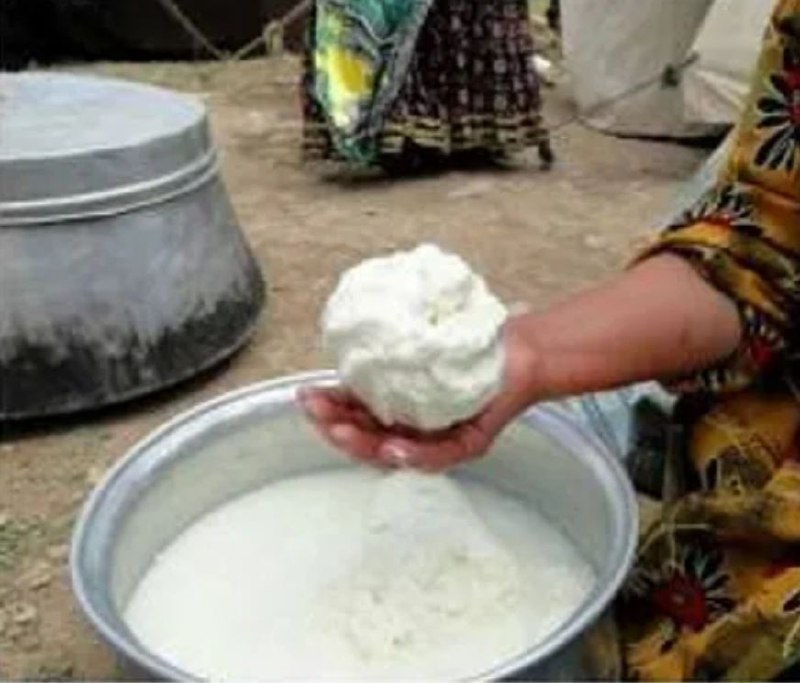Cleansing Mashaka
If Mashka has been affected by someone's negative words or thoughts (it is a belief in the Middle East that says some jealous people can affect others' well being) then the Mashka needs to be cleansed in an Islamic ritual. In this ritual, they use some mud to wash the Mashka with it and then they rinse it seven times with clean water.
They wash it seven times with clean water and say:
1. In the name of Allah, I hope the filth on this dish is clean and to be washed off with water.
2. Any filth on this Mashka that is caused by people or animals shall be cleaned.
3. This Mashka is washed seven times, the filth shall leave it through this river.
4. Seven times it has been washed in the name of God and his Prophet peace be upon him. I hope I am not in debt to anyone. I hope this filth leaves it.
Belief
Mashka or any other thing that has been filthy must be cleaned and washed seven times or else it will not be cleansed forever.
Mashka Chounawa Pash
It is a situation in which the normal way of shaking the Mashka is disturbed due to leaving it in the middle of the process.
Pouring Mashka
It is the time when they pour it into a pot to separate the butter from the Doogh.
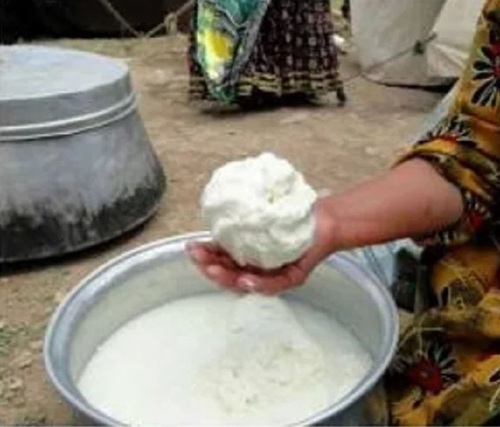
To lend Mashka
To give Mashka to the neighbors for a while. Some people do not lend their Mashka to anyone because they think it will cause them misfortune and if someone asks for it, they would say our Mashka is too big and we cannot move it.
Belief
If someone borrowed a neighbor's Mashka, they would put seven pieces of clean white stones on it then they would return it.
To expose Mashka to smoke
To hang the Mashka on the bakery room ceiling to be exposed to smoke.
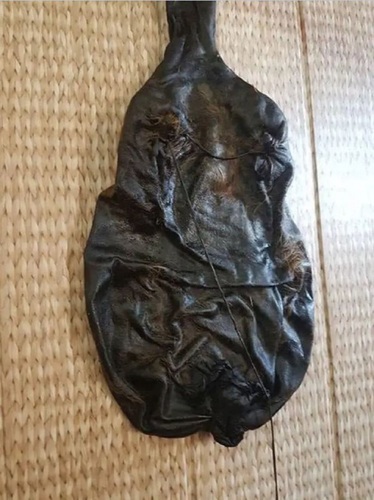
To crumple Mashka
When they crumple Mashka, they pour a lot of salt on it and scrub it as if they are washing it. Finally, they fold it and put it in a place so that it does not smell bad.
Custom
-In order to keep the Mashka safe from jealous people, they hang a pig's tooth on it.
-They count seven incense and at the same time they say "Peace be upon the Prophet seven thousand times and I hope the jealous and enemy's eyes be blind".
-They tie a black and a white thread together they add blue sequins to it and tie it to their Mashka.
Mashka destruction
When the Mashka does not work anymore for jealous eyes.
Mashka being done
When the Mashka process of producing butter out of the yogurt is completed.
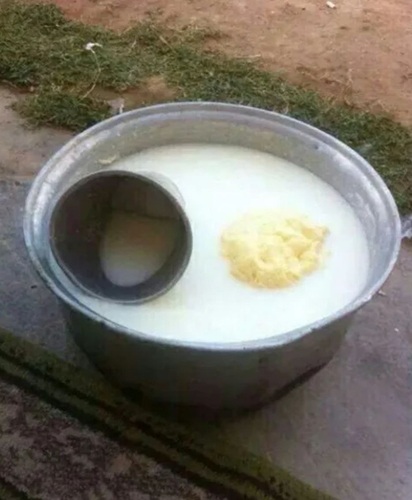
Mashka reproduction
When the butter made in Mashka is two or three times more than usual.
Belief
-If Mashka is reproduced, they should sacrifice an animal under it.
-If Mashka reproduces, in order to make it blessed, they should give a part of the butter away for free to others.
-If the Mashka reproduces, the family's oldest member will die.
-If Mashka reproduces, it should not be revealed.
Rocked Mashka
When butter is produced and the process is done, they say that the Mashka has been rocked and it is time to extract the butter.
Rocking Mashka
Rocking the Mashka forwards and backward so that it would produce butter. When a poppy flower is seen in the spring, it means that the milk is growing fattier and they stop making cheese and begin to rock Mashka.
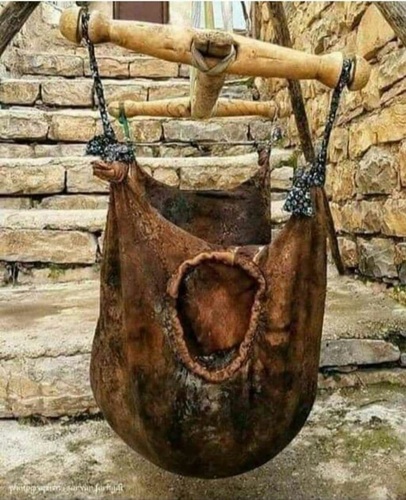
To rock a warm Mashka
Rocking Mashka with warm water that will last longer and produce less butter.
Pimpled Mashka
When the Mashka is done sooner than normal it is called pimpled Mashka. This will cause a lot of foam and a little butter.
To whiten the Mashka
If a Mashka is not prepared properly and there is still some hair left on it, they will remove the hair. In order to make this process easier they put the Mashka in a special recipe for a while and then they remove the hair with razor.
To embed Mashka
To put Mashka in flour and salt for a while so that the hair removing process could be done easily.
Shaking Mashka
To shake Mashka after the foam and butter appeared. This will clean up inside the Mashka.
Mashka Halguran
When the Mashka is done sooner than usual and the butter produced is watery and not much, they call it Mashka halguran.
To break down the water
To mix hot and cold water for Mashka.
To make it into Mashka
To tan an animal and keep the skin uninjured or torn.
It is an expression to threaten someone with because it used to be a torturing method in the past.
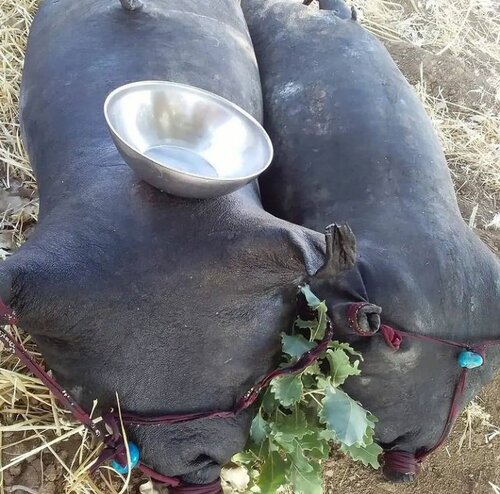
Belief
Those who can tan the animal they had killed as a sacrifice in the Eid, are blessed with God's compassion twice as much.
Mashka reproduction
If there is some yellowish foam in the corners of the Mashka, they say that our Mashka has reproduced.

